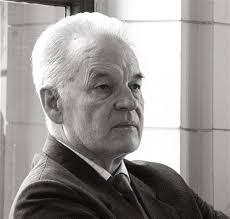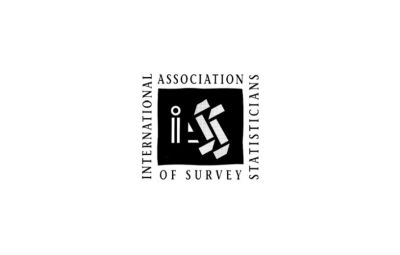
(1 november 1935 – 23 May 2014)
Professor Bronius Grigelionis, an outstanding Lithuanian mathematician, specialist in the theory of stochastic processes, member of the Lithuanian Academy of Sciences, passed away on 23 May 2014. Bronius Grigelionis was born in the village of Iciunai, Pasvalys district, on 1 November 1935, into the family of farmers Ignas and Ona Grigelioniai. His parents raised nine children, Bronius had five brothers and three sisters. Together with his siblings, Bronius attended primary school in Vaškai. Since he could already read and count, he was straight away placed in the second grade. Unfortunately, the Soviet occupation in 1940 and the beginning of World War II caused disruption in the schooling. In 1944, Bronius went to a middle school opened in Vaškai. Afterwards, in 1949, he attended Žeimelis secondary school, where he demonstrated exceptional ability in mathematics. Under the supervision of Motiejus Gudynas, an experienced teacher of mathematics, B. Grigelionis participated in several Olympiads for Young Mathematicians held in Vilnius. In 1953, he shared the second place together with Vincentas Dienys (now a well-known physicist, academician), leaving behind well-trained contestants from big cities of Lithuania. The following year, Bronius, then an eleventh grader, took the first place, and the third place went to his friend. The winner of the competition received a special prize, an impressive trip to Kiev, the city where he was destined to return later in his life.
In 1954, after finishing secondary school in Žeimelis, B. Grigelionis entered Vilnius University, Faculty of Physics and Mathematics, to study mathematics. His brother Stasys, prospective Doctor of Mathematics and Associate Professor of Vilnius Pedagogical University, had already been studying at the university; therefore, Bronius had been able to get acquainted with the main courses from his brother’s books and lecture notes. During the years at university, B. Grigelionis was actively involved in the seminar on Probability Theory and Mathematical Statistics supervised by Jonas Kubilius, Rector of Vilnius University. He also participated in students’ scientific conferences not only in Lithuania but in Tartu and Tbilisi as well. Soon Bronius took interest in probabilistic number theory, founded by J. Kubilius. Under the supervision of Rector J. Kubilius, B. Grigelionis wrote a diploma thesis on distribution of values of multiplicative arithmetic function, which was basis for his first published scientific article. B. Grigelionis would later in life return to the field of probabilistic number theory. In 1959, B. Grigelionis graduated from Vilnius University with distinction (Bronius got the highest marks for all examinations!) and started to work at the Lithuanian Academy of Sciences, Institute of Physics and Mathematics (established in 1956), and worked until the last days of his life; the names of the institute were changed several times: in 1977, the institute was named Institute of Mathematics and Cybernetics and from 1990 became Institute of Mathematics and Informatics. For many years, B. Grigelionis was the head of the Department of Mathematical Statistics and delivered lectures at Vilnius University.
Further, the next stage of education awaited, post-graduate level studies. B. Grigelionis displayed remarkable aptitude for maths, which encouraged professor J. Kubilius to recommend him to Boris Gnedenko, professor of Kiev University, member of the Ukrainian Academy of Sciences, an acclaimed specialist in the theory of probability. In October 1959, B. Grigelionis went off to Kiev to work on his doctoral thesis. In the capital of Ukraine, he found himself in the scientific community of well-known scholars, budding stars of the theory of probability such as I.N. Kovalenko, V.S. Korolyuk, I.I. Gikhman, A.V. Skorokhod, etc. Scientific seminars at Kiev University and contacts with the scholars opened up new horizons for B. Grigelionis. Not only did he study random processes and the theory of mathematical statistics (studies of “Stochastic processes” by J.L. Doob were of significant importance), but also individually deepened his knowledge in general topology and functional analysis. Research advisor B.V. Gnedenko offered B. Grigelionis to investigate important problems of summation of point processes, which he stated at the International Congress of Mathematicians in Edinburgh in 1958. The doctoral student successfully managed to cope with the task and obtained necessary and sufficient conditions for convergence of sparse point processes to the Poisson law. This fundamental result, now widely known as the Grigelionis theorem, is considered significant in reliability and queueing theories. The scientific works by B. Grigelionis were appreciated and highly valued by his scientific advisor and other scholars. In 1961, he participated in the 4th Congress of Soviet Mathematicians held in Leningrad (now Sankt Petersburg), where he presented his research work.
In 1960, still studying for his doctoral degree, B. Grigelionis moved to Moscow together with his scientific advisor B.V. Gnedenko, who left Kiev and returned to Moscow University, Department of Probability Theory. At that time, the Head of the Department was Andrei Kolmogorov, who among a host of significant contributions to mathematics had laid the axiomatic foundations of probability theory. In Moscow, B. Grigelionis attended seminars run by B.V. Gnedenko, Yu.K. Belyaev, A.D. Solovyev (“Methods of Reliability Theory”), also E.B. Dynkin’s famous seminar on Markov Processes. In Moscow, B. Grigelionis further worked on the theory of random processes; he also became acquainted with other branches of contemporary mathematics. On 23 February 1963, Bronius Grigelionis received the Candidate of Science degree (now PhD) at Vilniaus University defending the thesis “Limit theorems for sums of random step processes” (opponents for the thesis were Yu.V. Prokhorov and Yu.K. Belyaev).
The knowledge acquired in Moscow was fully applied in Lithuania. Only six years passed, and in 1969, Grigelionis defended the doctoral thesis “Studies of random processes (optimal stopping, effective markovity criteria)” and received the Doctor of Science degree (habilitation) from Vilnius University, thus, becoming one of the youngest scholars in Lithuania holding the highest academic qualification. In his doctoral thesis, he explored fundamental optimal stopping problems of Markov processes. The obtained criteria of optimal stopping and markovity became classical results of sequential analysis. In 1969, B. Grigelionis received the Lithuanian National Science Award and in 1971 was promoted V. Statulevicius, B. Grigelionis, and their followers, Vilnius along with Moscow, Leningrad, Novosibirsk, and Kiev gained recognition as one of the main influential research centers of probability theory in the former Soviet Union. B. Grigelionis was actively involved in guidance and supervision of young researchers, long before earning his own habilitation. In 1973, the 1st International Vilnius Conference on Probability Theory and Mathematical Statistics was held in Vilnius. B. Grigelionis was one of its most active organizers. The conference takes place in Vilnius every four years. B. Grigelionis made arrangements for work of the section of stochastic analysis during the last, 11th International Vilnius without the organizer. In 1976, he was elected full member of the International Statistical Institute (ISI), the second representative from Lithuania after V. Statulevicius, later became a member of Bernoulli Society; in 1987, he was elected member of the Lithuanian Academy of Sciences, in 1991, member of the Lithuanian Catholic Academy of Science. B. Grigelionis was in close scientific contact with specialists in the theory of processes in Moscow and Kiev, cooperated with scholars in France and Germany, took active part in organizing the International Vilnius Conference on Probability Theory and Mathematical Statistics, also workshops and seminars on random process theory held in Druskininkai, Preila, Palanga, and Vilnius. For numerous years, he was the moderator of the seminar on random processes at the Institute of Mathematics and Informatics. Being one of the most outstanding experts in process theory, B. Grigelionis was frequently invited to give presentations and lectures in conferences and symposiums not only in Europe, but also in the USA, Canada, China, India, and Japan. 19 doctoral dissertations were written and successfully defended under his thorough guidance and supervision. B. Grigelionis was a scientific advisor for six researchers who later became habilitated doctors. Publications of around 150 scientific articles by B. Grigelionis appeared in a variety of international journals. In 2012, his monograph “Student’s t-Distribution and Related Stochastic Processes” was released by Springer-Verlag. The last article by B. Grigelionis was published in a book dedicated to Yu.V. Prokhorov (edited by A.N. Shiryaev et al.).
It would take a separate study only to list all the achievements and theories developed by B. Grigelionis. Nevertheless, the theory of random processes and statistics was undoubtedly the most noticeable area of his scientific interest. Significant part of his work relates to the theory of semimartingales. Semimartingales are a very wide class of random processes describing many continuous and discontinuous stochastic processes arising in practice and therefore allowing one to relate very different, at first sight, problems and to apply general methods and principles for their solutions. The basics of the theory of martingales (which are the key notion for description of the class of semimartingales) were developed in the second half of the previous century by J.L. Doob, P.-A. Meyer, D. Burkholder, and others. Martingale methods are widely used in proving the properties of limit distributions of statistics, in queuing theory, financial and actuarial mathematics, theory of Markov processes, reliability theory, and even in probabilistic number theory. For example, in financial mathematics, the fundamental properties of financial markets, such as no-arbitrage, completeness, and efficiency, are formulated in martingale terms. B. Grigelionis was the first one to define the notion of local characteristics of a semimartingale, to develop the theory of semimartingales characterized by these characteristics, and to show their importance. Many results that are now classical in this theory have been obtained by B. Grigelionis, for instance, a martingale characterization of processes with independent increments, and a most useful result that shows that many point random measures can be represented by a Poisson point process. In 1972–1989, B. Grigelionis developed the theory of filtering for stochastic processes, studied conditions for absolute continuity, weak compactness, and convergence of semimartingales. In the theory of statistics of random processes, of great importance are the Hellinger processes and integrals, which used to state the conditions for regularity and singularity of statistical experiments. B. Grigelionis obtained representations of Hellinger processes and relations between Hellinger measures and Schrödinger-type operator semigroups and described the Hellinger transformations (1989–1995). Noteworthy are the works by B. Grigelionis devoted to studies of extremal values of stationary diffusion processes: he obtained a full description of distributions of power-normed extrema, generalizing the classical Gnedenko classification of distributions of linearly normed extrema, and necessary and sufficient domains of attraction of these distributions, together with norming constant (2001–2005).
In the 1990s, B. Grigelionis was probably the first in Lithuania to get drawn to the problems of financial and actuarial mathematics. Using martingale methods, he obtained two-side estimates of the ruin probabilities in the classical Cramér–Lundberg collective risk model in a random Markov environment. B. Grigelionis was the first to propose a description of logarithmic returns by Meixner and later by generalized z-processes and derived for them a constructive analogue of the Black–Scholes formula. His ideas were developed and applied to arbitrage-free financial market models, which are in good agreement with statistical properties of real world financial data. In recent years, B. Grigelionis was interested in the theory of distributions of random variables: he considered multidimensional analogues of Thorin and Tweedie distributions and their relations with infinitely divisible laws, closure, self-divisibility, subordinated Lévy processes, and other characteristics.
In addition to his intensive scientific pursuits, B. Grigelionis was active in the social life of the community. All his life, he adhered to his strong moral principles and values. Along with the beginning of the Awakening and Sajudis , the reform movement in Lithuania, B. Grigelionis was the leader of the movement group in the Lithuanian Academy of Sciences, was elected to S ̨ajudis ̄ Seimas, contributed to the establishment of the Union of Lithuanian Scientists, was elected to the Research Council of Lithuania, where he worked four years. Academician Grigelionis had never forgotten his native Pasvalys district, homeland of many profound Lithuanian personalities. In 1989, when in Vilnius a community of descendants from Pasvalys was founded, B. Grigelionis was an active member and the chairman for a number of years. Together with Associate Professor A. Apynis, he set about organizing Olympiads for Young Mathematicians in Pasvalys district. In 2005, B. Grigelionis was awarded an honorary citizenship of Pasvalys district.
Bronius together with his wife Onute raised their son Gintautas, who opted for a career of a physicist; their daughter Milda is a psychologist.
The entire life of Bronius Grigelionis was devoted to Lithuania and the science of mathematics. Here is a quotation from a book “Bronius Grigelionis” compiled by A. Apynis in 2005 on the occasion of the 70th anniversary of the Academician: “Whatever the definition of mathematics is, queen or servant of sciences, and whatever the country or the epoch is, the standard of mathematical culture marks significantly the overall standard of culture. By cherishing and fostering mathematical skill like a divine gift, we amplify the greatest treasure of the nation, its intellectual potential, which allows us to stand proudly side by side with civilized nations.” These words should inspire us to remember this great person, whereas young people should be encouraged to continue his work.
J. Jacod
K. Kubilius
R. Leipus
V. Mackevicius
R. Mikulevicius
V. Paulauskas
A.N. Shiryaev
D. Surgailis




